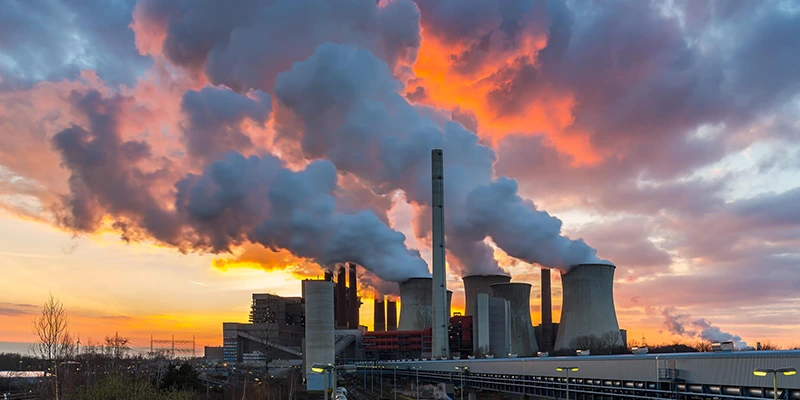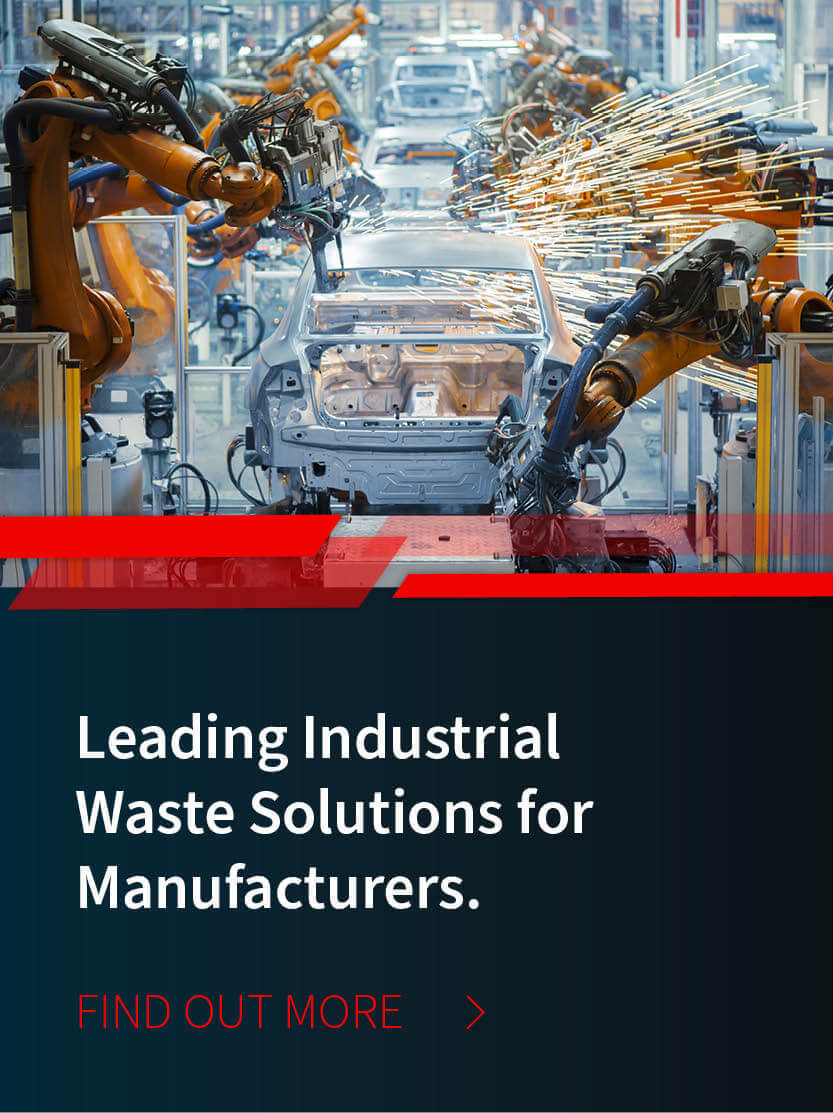
/ IN THIS BLOG
01 / What is industrial waste?
An industrial waste is the useless byproduct of a manufacturing process, therefore unwanted, and so in need of waste disposal. One of the first areas of confusion is that an industrial waste can be either non-hazardous or RCRA hazardous.
A second source of confusion is that “industrial wastes” are sometimes referred to as “manufacturing wastes,” which is not an official EPA category. This creates a challenge when talking about specific, regulated waste types. Someone calling something a “manufacturing waste” might be talking about a municipal waste, a “listed” waste, a hazardous waste, a non-hazardous waste, etc.
02 / Disambiguating terms about industrial waste
Exploring the nuances among these terms is beyond the scope of this blog entry. They’re discussed it in more detail here. But bear in mind—depending on the conversation and who’s doing the talking—being clear about them is crucial. This is for at least three reasons:
Foremost, because disposing of a hazardous waste into a municipal waste stream, accidentally or otherwise, will subject you to significant EPA fines and penalties; and state eco-laws are generally stricter than their federal counterparts.
Because treating a non-hazardous waste as a hazardous one spuriously inflates your hazardous waste disposal
Relative to (2), haphazardly mixing a hazardous material with a non-hazardous one turns both into single hazardous waste, again needlessly inflating your hazardous waste management
Another caveat: remember that “listed” wastes are sometimes incorrectly referred to as “industrial wastes.” People might call any waste that comes from a factory an “industrial waste” in common-sense language. But if the industrial waste is a “listed” material, then it’s a RCRA hazardous waste, and so requires hazardous waste management.
(Note: A “listed” waste is one of two categories of hazmat per the EPA. Listed wastes are so called because they exist on lists of materials deemed hazardous by the EPA. The other category is “characteristic” wastes, which aren’t “listed” but are nonetheless hazardous for having the “characteristics” of toxicity, corrosiveness, ignitability, or reactiveness.
03 / What are the general types of industrial waste?
Types of industrial waste include dirt and gravel, masonry and concrete, scrap metal, oil, solvents, chemicals, scrap lumber, and many more spent materials, which might be in solid, semi-solid, or liquid form (see source).
An industrial waste might be a “listed or “characteristic” hazardous waste, and thus require EPA‑compliant hazardous waste handling; or it might be RCRA non-hazardous and disposable into the municipal waste stream. But in the latter case, a non-hazardous industrial waste might still require special treatment before it can be disposed of.
04 / What are some specific examples of industrial waste?
The following table presents 17 examples of industrial wastes across six industry sectors (see source):
| INDUSTRY TYPE | INDUSTRIAL WASTE PRODUCED |
| Chemical manufacturing | 1.Acids and bases 2.Spent solvents 3.Reactive wastes 4.Wastewater with organic constituents |
| Printing industry | 5. Heavy metal solutions 6.Waste inks 7. Solvents 8. Ink sludges with heavy metals |
| Petroleum refining | 9. Wastewater with hydrocarbons 10. Refining sludge |
| Leather products manufacturing | 11.Toluene and benzene |
| Construction industry | 12. Ignitable paint waste 13. Spent Solvents 14. Strong acids and bases |
| Metal manufacturing | 15. Sludges with heavy metals 16. Cyanide 17. Paint waste |
05 / Get expert advice about disposing industrial waste.
Whether big or small, manufacturing facilities are bound to generate some form of industrial waste; and a good deal of it is likely RCRA hazardous or otherwise requires special handling.
Partnering with a qualified waste management provider ensures that your industrial waste is disposed of legally, safely, and in the most cost-effective way.
Look to MCF Environmental Services for comprehensive management, transportation, and disposal services for a wide range of industrial wastes, including but not limited to:








